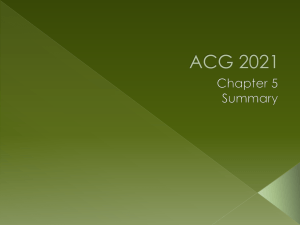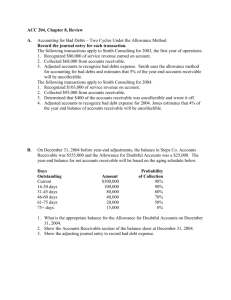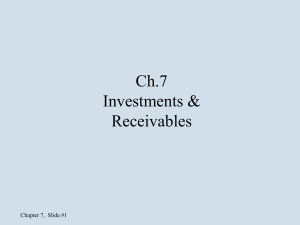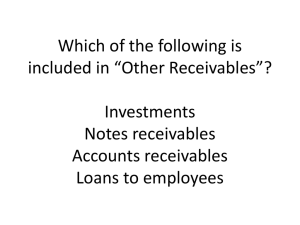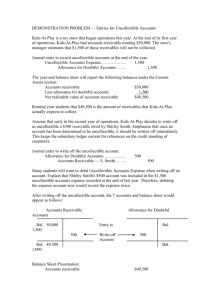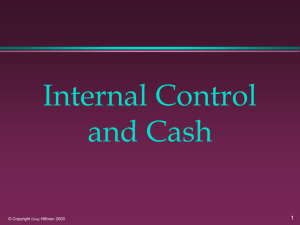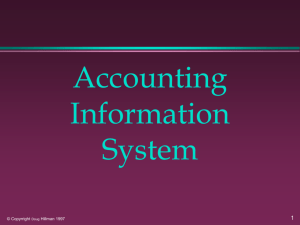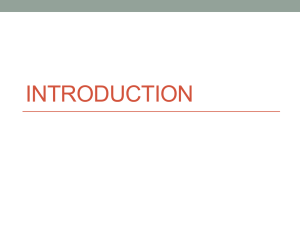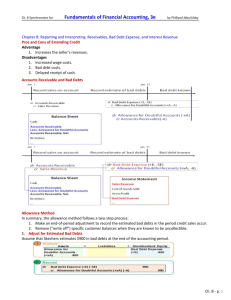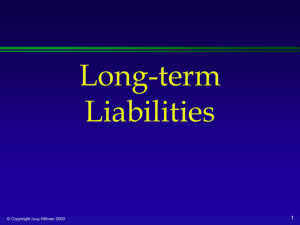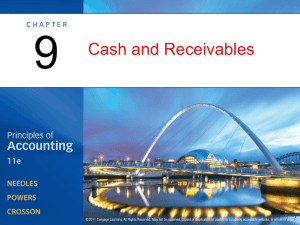The System of Accounting
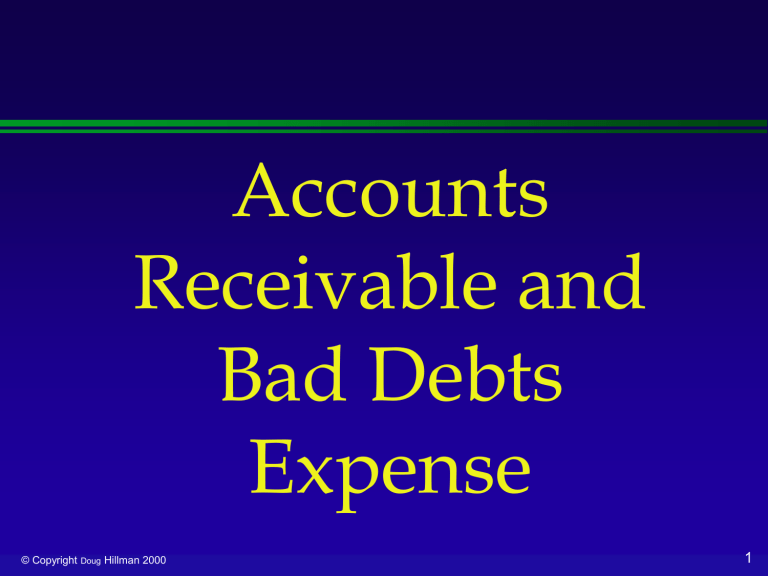
Accounts
Receivable and
Bad Debts
Expense
© Copyright
Doug Hillman 2000
1
Receivables on Balance Sheet
Trade receivables
› Arise from sale of goods or services to customers
Nontrade receivables
› Arise from other sources
© Copyright
Doug Hillman 2000
2
Bad Debts Expense
An account receivable that proves uncollectible
Accrual accounting requires that we recognize the bad debts expense in the same period as the sales revenue
Since we may not know at end of period which accounts will be uncollectible, we must estimate the amount
Use allowance method
© Copyright
Doug Hillman 2000
3
Recording Bad Debts
Adjustment
Estimate and record amount in an endof-period adjustment
Estimate uncollectible amount
Record increase in expense and decrease in accounts receivable
Since specific uncollectible account not known, use contra account Allowance for Doubtful Accounts
© Copyright
Doug Hillman 2000
4
Balance Sheet Presentation
Current assets
Cash
Accounts receivable $8,000
$1,000
Deduct: Allow for DA 500 7,500
Notes receivable 900
© Copyright
Doug Hillman 2000
5
Writing Off Uncollectible
Accounts
After determining a specific account is uncollectible
Decrease accounts receivable
Decrease allowance for doubtful accounts
© Copyright
Doug Hillman 2000
6
Balance Sheet
Before Write-off After
Accts Rec $8,000 $(200) $7,800
Allowance 500 (200) 300
Net realizable value $7,500 $7,500
© Copyright
Doug Hillman 2000
7
Recovery of Bad Debts
Reinstate the account
› Increase accounts receivable
› Increase allowance for doubtful accounts
Collect the account
› Increase cash
› Decrease accounts receivable
© Copyright
Doug Hillman 2000
8
Estimating Bad Debts:
Based on Sales
Use a historical average of annual uncollectibles to annual net sales
Calculate amount of bad debts expense
› Multiply net sales by percent
Adjust Bad Debts Expense by the amount calculated
© Copyright
Doug Hillman 2000
9
Estimating Bad Debts:
Based on Accounts Receivable
Use a historical average of annual uncollectibles to year end accounts receivable
Calculate balance of allowance for doubtful accounts
› Multiply year end accounts receivable by percent
Adjust Allowance for Doubtful Accounts to the amount calculated
© Copyright
Doug Hillman 2000
10
Aging of Accounts Receivable
Schedule that lists each invoice by days elapsed since due date
Aging categories
› Not Yet Due
› 1-30 Days Past Due
› 21-60 Days Past Due
› etc.
© Copyright
Doug Hillman 2000
11
Estimating Bad Debts with
Aging Schedule
Use different percentage to estimate uncollectible amount for each aging category
Sum of amounts calculated is desired balance in Allowance for Doubtful
Accounts
© Copyright
Doug Hillman 2000
12
Direct Write-off Method
Write off accounts receivable and record expense when account determined to be uncollectible
Causes a mismatching of revenue and expense
Simple to maintain
© Copyright
Doug Hillman 2000
13
Credit Card Sales
Credit card fee reduces amount received from sales amount
Bank credit cards
› Accepted as deposit for amount of sale less fee
Nonbank credit card
› Receivable for amount of sale less fee
© Copyright
Doug Hillman 2000
14
Analyzing Information
Is percent of bad debts expense to net sales increasing or decreasing?
Is percent of allowance for doubtful accounts to gross accounts receivable increasing or decreasing?
© Copyright
Doug Hillman 2000
15
